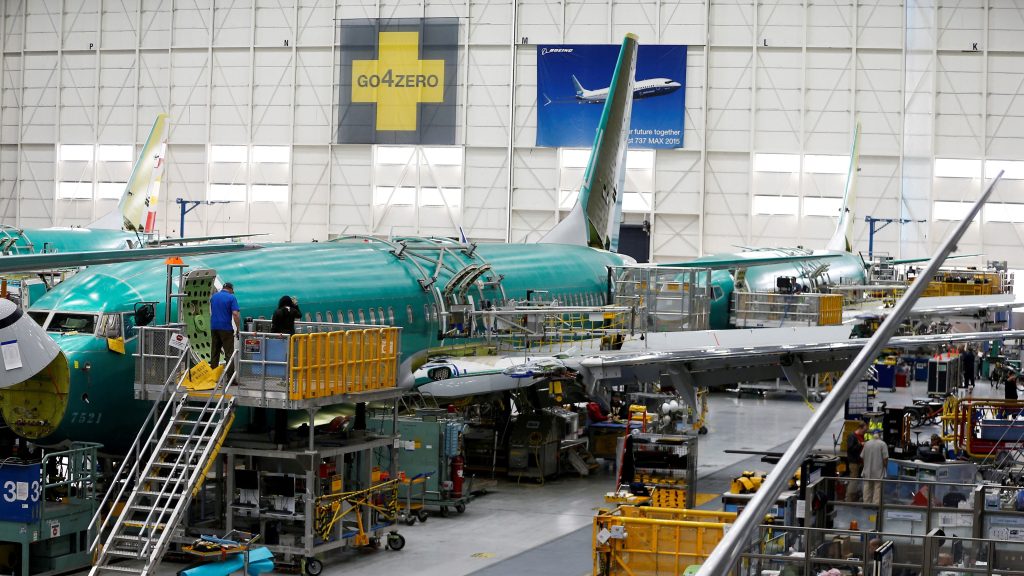Boeing Sets Record 737 Production Goal For July 2025 – Sources

Boeing plans to push production of its bestselling 737 narrowbody jet to a record of at least 57 per month by July 2025, reflecting rising orders and the company’s recovery after the 737 MAX crisis, according to two sources with knowledge of the matter.
The goal would hit the planemaker’s unmet target from several years ago, which was scuttled in 2019 when the MAX was grounded globally following two deadly plane crashes.
Both Boeing and its European rival Airbus have laid out ambitious ramp-up goals as air travel and aircraft sales rebound, with Airbus producing in-demand single aisle planes even faster than the U.S. planemaker.
Boeing laid out the plan in the latest version of its master schedule for suppliers, which was reaffirmed by the planemaker in mid-September, the sources told Reuters on condition of anonymity because the document is not public.
Boeing declined to comment.
The schedule targets 737 production to reach 42 jets a month by December 2023, affirming statements made by Boeing Commercial Airplanes head Stan Deal to Bloomberg TV in June.
From there, monthly 737 production – which includes the 737 MAX as well as earlier models used for military planes – is set to grow to 47.2 jets in June 2024 and 52.5 jets in December 2024 before hitting a steady rate of 57.7 aircraft per month in July 2025.
An earlier version of the plan, which Reuters reported in April, had seen 52 jets per month production a month later, in January 2025.
Before the 2019 grounding of the 737 MAX, Boeing was producing 52 737s a month on its way to a target of 57.
Boeing’s formal 737 production target is 50 per month for the 2025-2026 timeframe, unveiled by the company last November during an investor day.
But Boeing CEO Dave Calhoun telegraphed a rate increase to 60 jets a month could be on the table as the company racks up orders, such as a deal with Air India for almost 200 MAXs booked this year.
“I would love to get to 60 deliveries and the market is there for it. There’s no doubt about it,” Calhoun said in a July earnings call.
The Boeing CEO added the second half of 2024 would be a key moment for the company to prove it could keep its supply chain stable and maintain its ramp up plan.
“If we get through that well and we execute well, then we’ll be talking to all of you about 60 deliveries,” Calhoun said at the time. “But I don’t want to get ahead of myself.”
It is not uncommon for supplier schedules to change based on numerous factors, but it is an important signal to the supply chain that allows smaller companies to make necessary investments, the sources said.
Airbus in July reaffirmed a widely watched production goal for its best-selling A320neo family jets of 75 a month in 2026, with executives stating it was “progressing well.”
(Reporting by Valerie Insinna; Editing by Peter Henderson and Jamie Freed)




